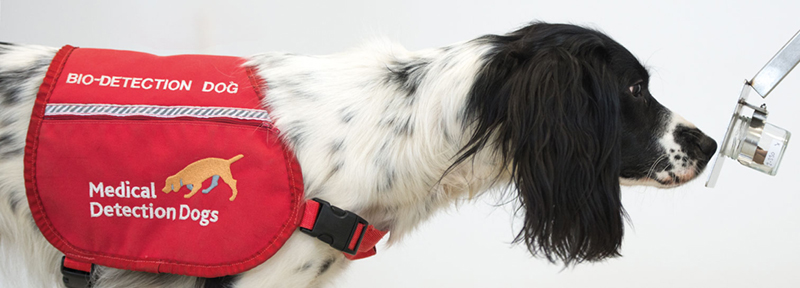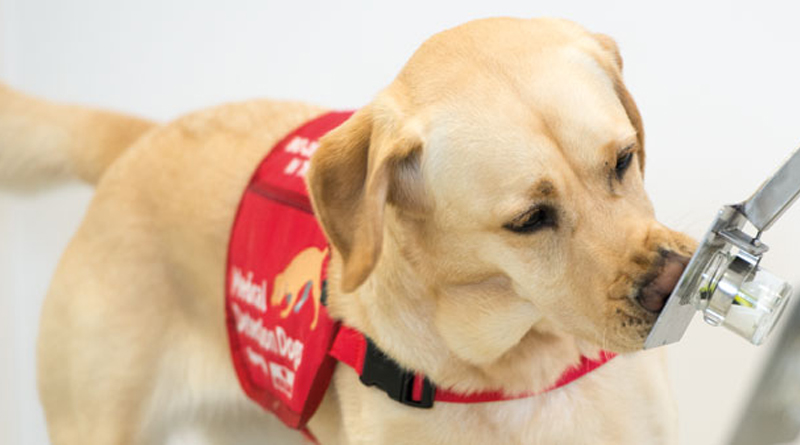Q&A: MEDICAL DETECTION DOGS – DOGS SAVING LIVES
Medical Detection Dogs are trained to detect diseases or infections in humans – based upon the odour of the infection.
Mark Doggett is a Bio Detection Project Specialist at the Medical Detection Dogs charity. He leads a group of projects for the Bio Detection department, each of which has a group of dogs they train to detect a variety of diseases including Cancer, malaria and Parkinson’s disease.
What are Medical Detection Dogs – what do they do?
We are a national charity based just outside Milton Keynes and our mission is to train dogs to save lives using their amazing sense of smell.
There are two ways that we do this; Medical Alert Assistance Dogs live with clients with complex health conditions and are trained to recognise a change in the odour of the client so they can warn them when they are about to become dangerously unwell. The client has no awareness that this is about to happen and the dogs alert to conditions like Type 1 diabetes, PoTS, Addisons and severe allergies. It allows the client to take appropriate action such as using the medication they need or getting to safety before they collapse. On top of that it gives them back their independence, confidence and overall quality of life.
Our other side of the charity is Bio Detection – here we train groups of dogs to recognise the odour of disease or infection on samples rather than people. This world leading research will lead to more accurate and non-invasive tests for the future.

Why are they needed?
There is no machine that can detect disease like our dogs can and their success rates are often higher than current technology. Many clients that are partnered with our Medical Alert Assistance Dogs have tried all sorts of medication and find that our dogs monitor them far more effectively. The work of our Bio Detection dogs is world-leading research which could pioneer new ways for disease detection in the future.
Where do the dogs come from and how are they trained?
Our dogs come from various sources; we purchase puppies from breeders and other assistance dog organisations, we sometimes take in donations, we’re also really proud that wherever possible we will use rescue dogs to give them a second chance and a fantastic life.
Which breeds make the best medical detection dogs?
It comes down a lot to individual characteristics rather than breed type, but we do have a lot of Labradors, spaniels, golden retrievers. This is because they have been selectively bred to be excellent at using their nose and working in partnership with humans, two traits we couldn’t do without.
What happens to the dogs once they retire from service?
We are extremely proud as a charity to have a complete no-kennel policy, so all our dogs live with volunteer foster families. When the dogs come to retirement they are nearly always kept by their volunteer foster family, but where that isn’t possible we have a carefully selected list of people who want to re-home our dogs and give them a long happy retirement.
Where can we find out more in UK?
You can find out more about our work by visiting our website: medicaldetectiondogs.org.uk
And you can follow us on Social Media:
Facebook:@MedicalDetectionDogs
Twitter: @meddetectdogs


